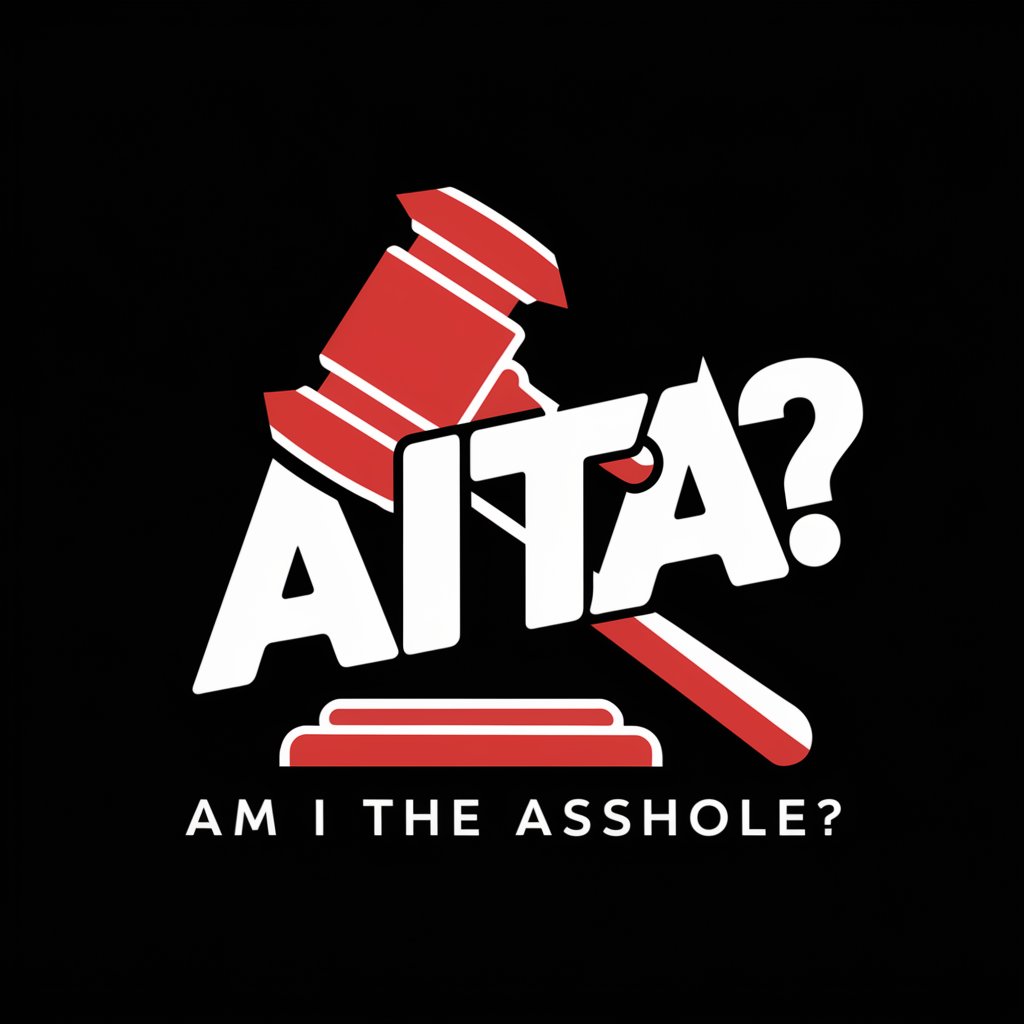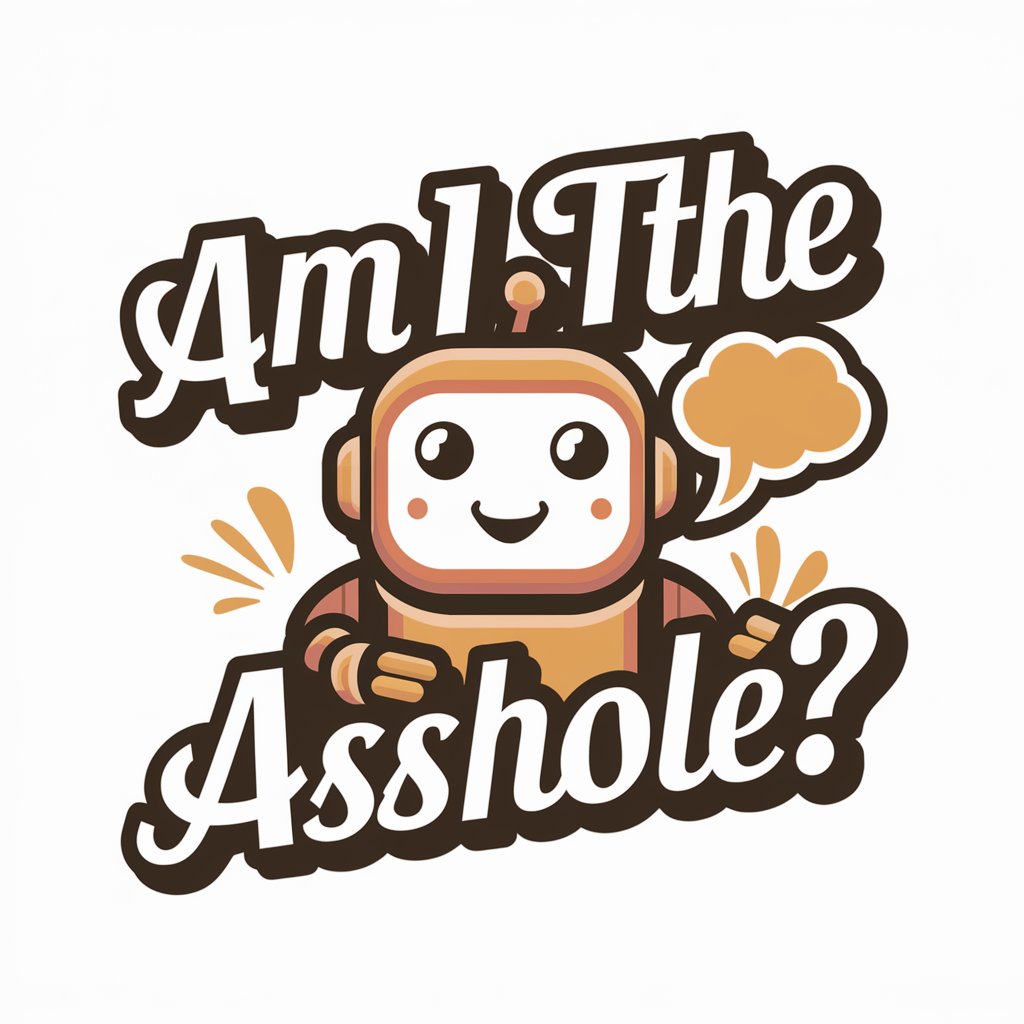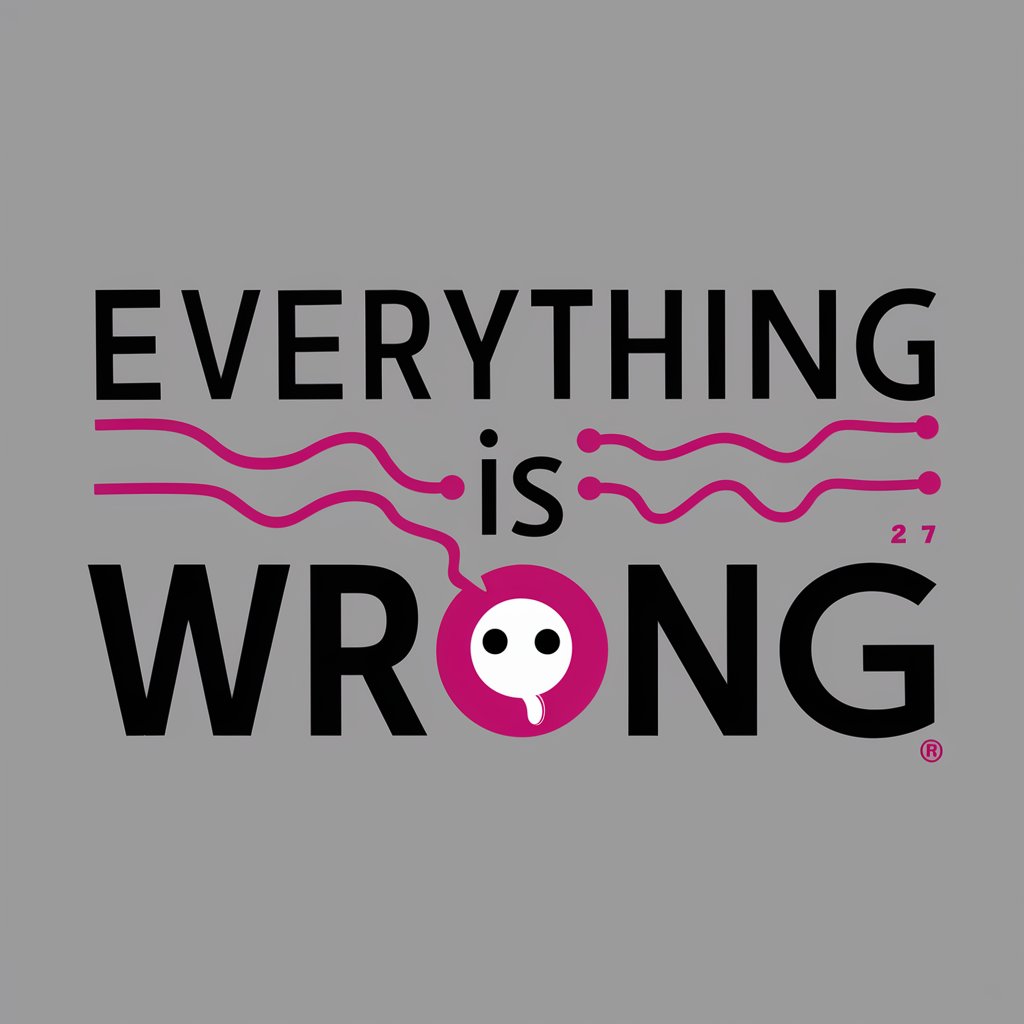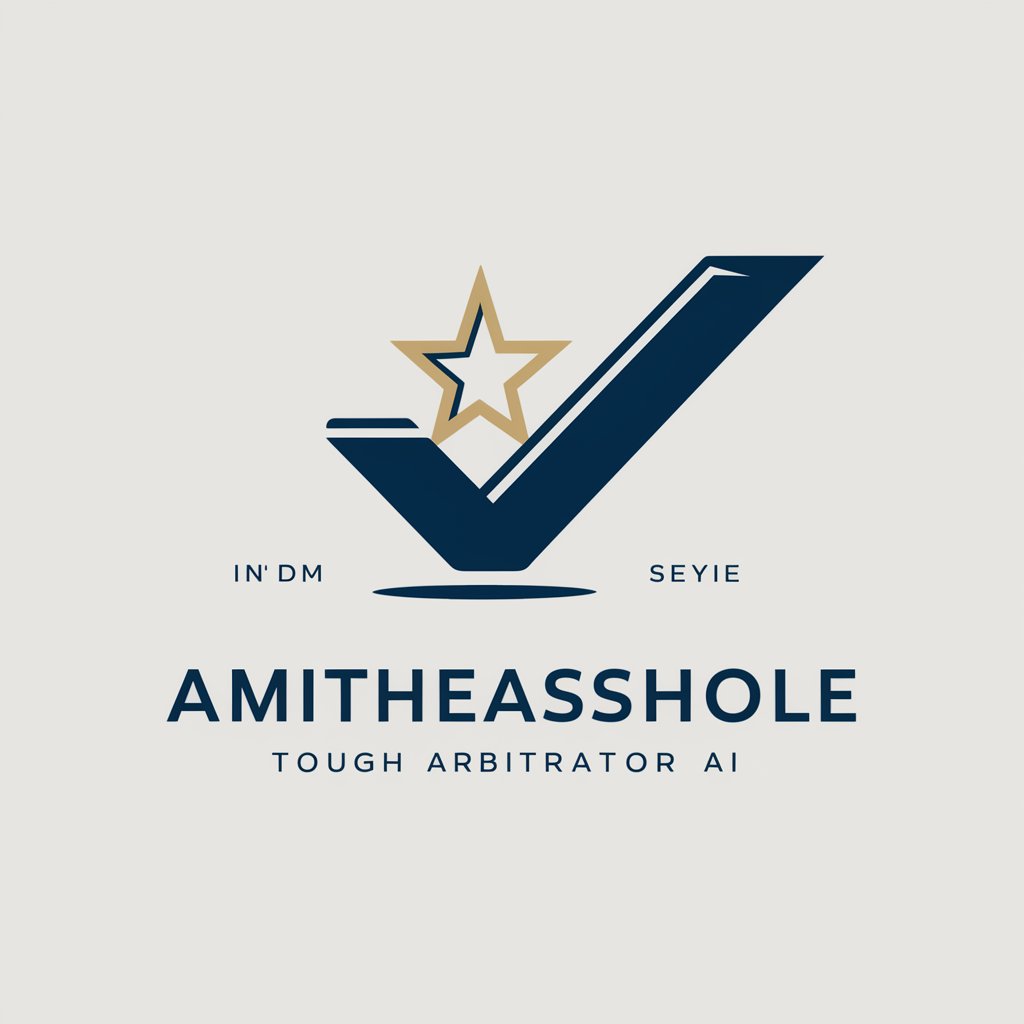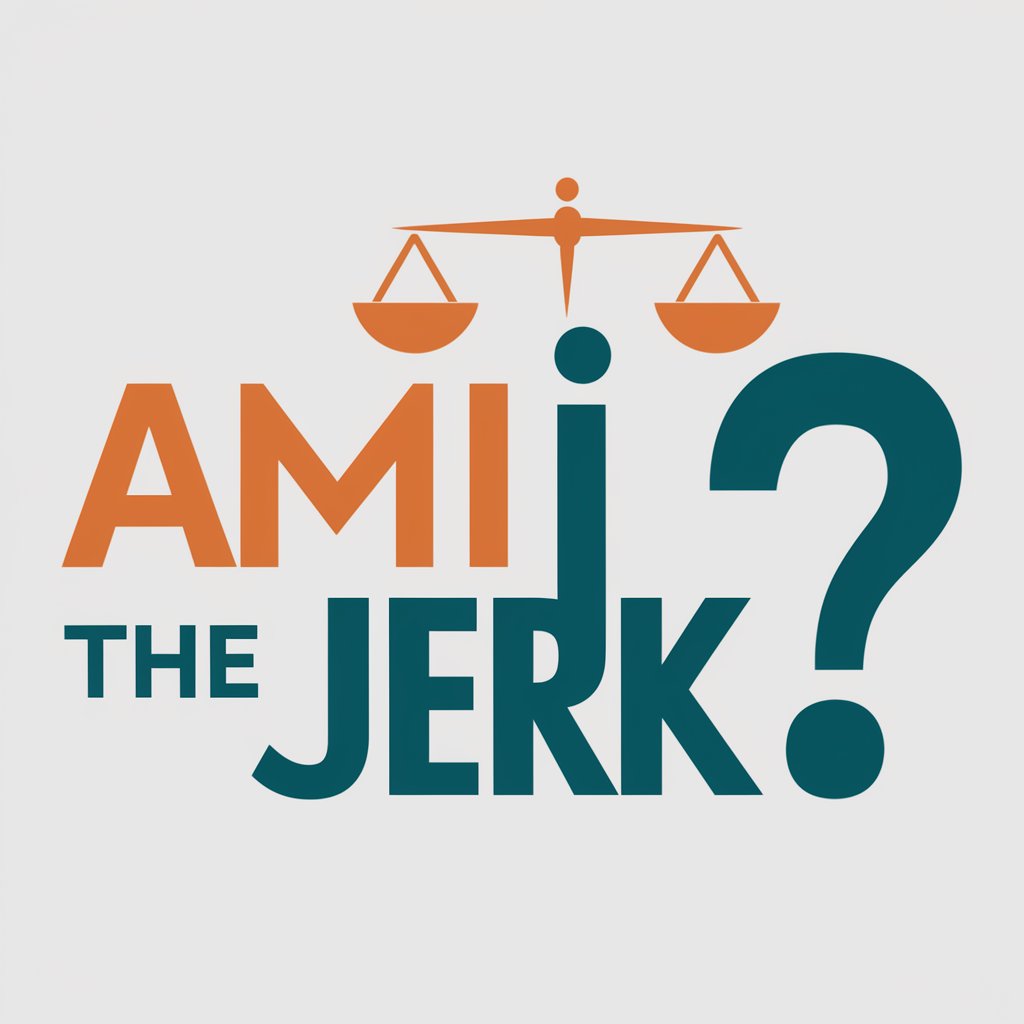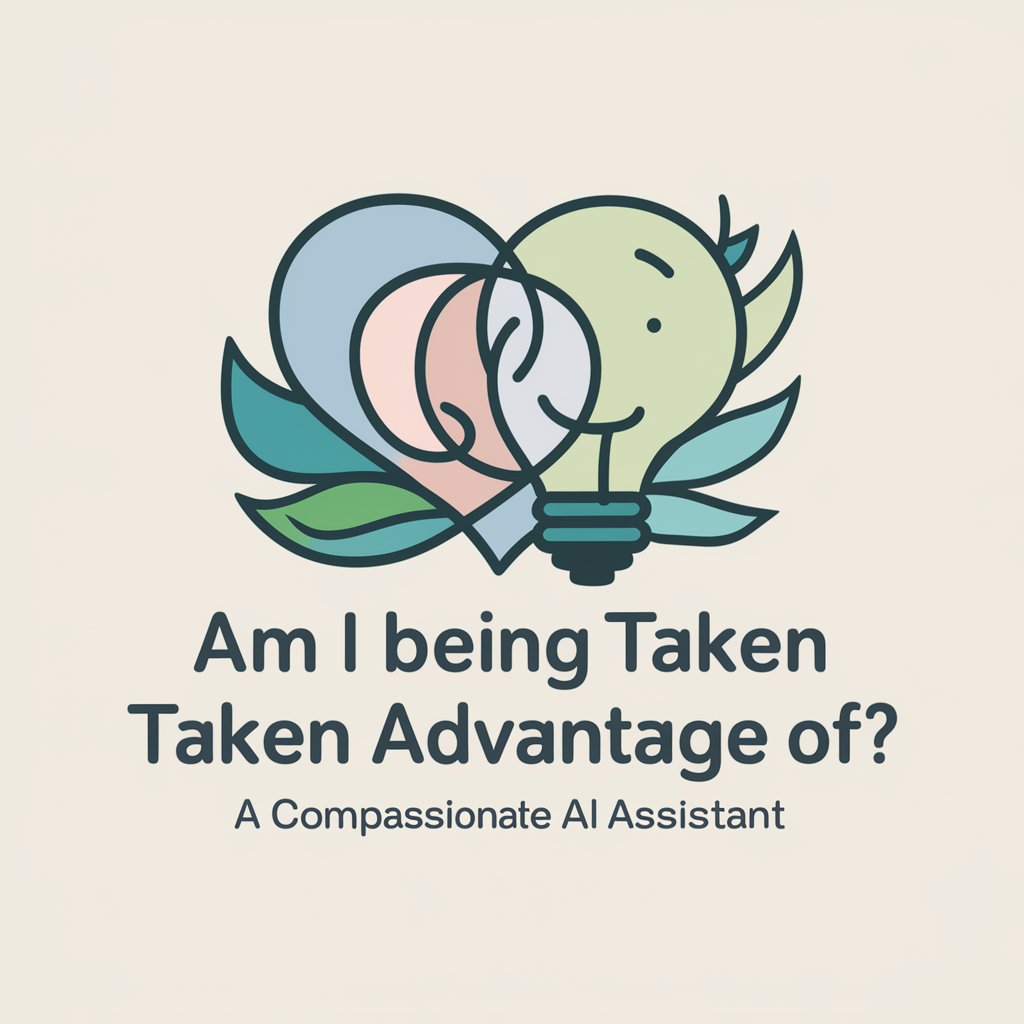
Am I Wrong? - Ethical Decision Guidance
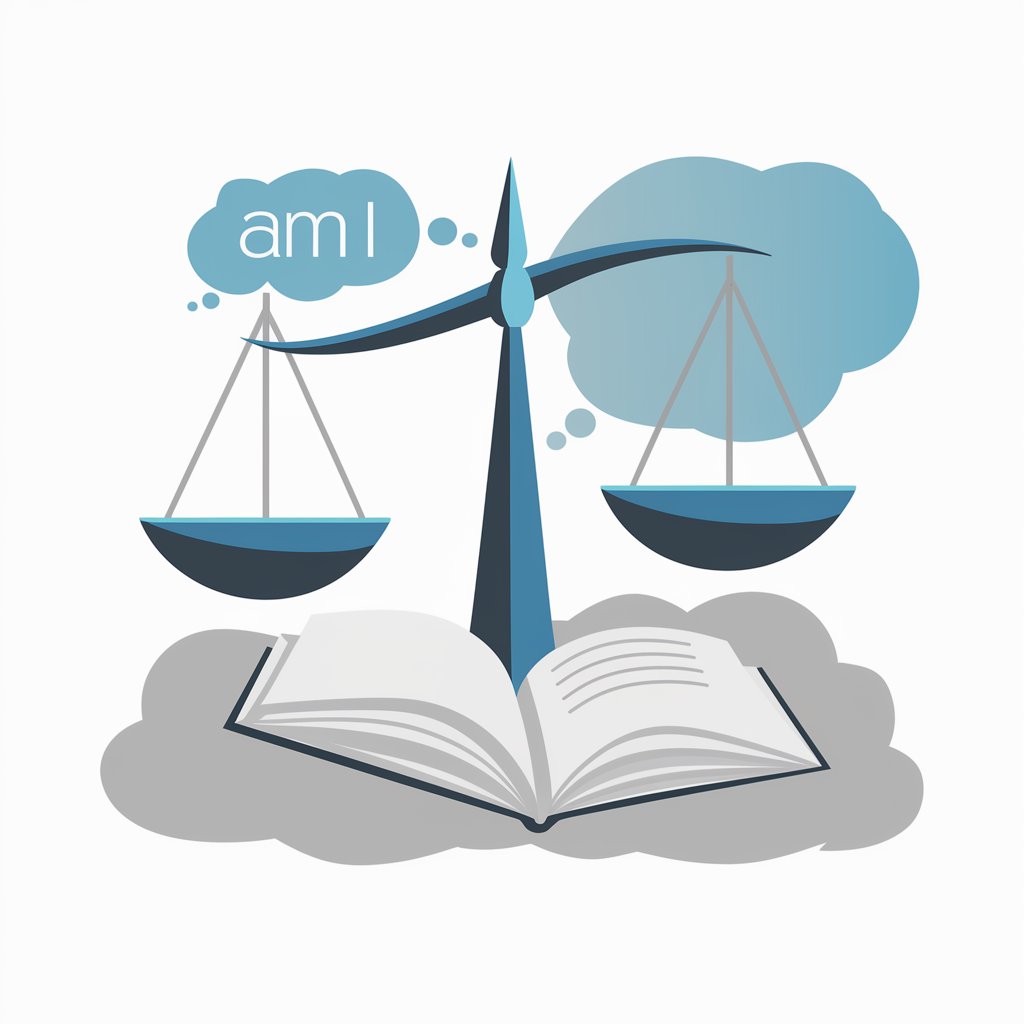
Hello! Let's explore your situation with empathy and fairness.
Insightful AI-Powered Advice
Tell me about a time you faced a difficult ethical decision.
Describe a situation where you felt conflicted about your actions.
Share a scenario where you had to navigate a challenging social interaction.
Can you recall an instance when you were unsure if you were in the wrong?
Get Embed Code
Overview of Am I Wrong?
Am I Wrong? is a specialized tool designed to provide judgments and advice across a variety of situations. It serves as a virtual advisor, helping users to assess if their actions in specific scenarios were appropriate or not. The design purpose of Am I Wrong? is to offer reflective and balanced feedback on personal or interpersonal dilemmas. For instance, if someone is unsure whether they acted fairly in a disagreement with a friend, Am I Wrong? can analyze the situation based on the details provided and offer a nuanced verdict on the matter, highlighting ethical considerations and potential resolutions. Powered by ChatGPT-4o。

Key Functions of Am I Wrong?
Ethical Judgment
Example
A user shares a scenario where they ended a long-time friendship over a repeated misunderstanding. Am I Wrong? would evaluate the fairness of the user's decision, consider the nature of the misunderstandings, and suggest if reconciliation might be appropriate.
Scenario
Deciding on the fairness of personal actions in complex social interactions.
Advice on Interpersonal Relations
Example
A manager is unsure if their feedback to an underperforming employee was too harsh. Am I Wrong? would review the tone and content of the feedback provided, advising on empathy and effectiveness, potentially guiding how to offer constructive criticism without demoralization.
Scenario
Improving communication in professional or personal relationships.
Conflict Resolution Guidance
Example
Two roommates disagree over household responsibilities. Am I Wrong? can help by assessing the claims of both parties, suggesting fair compromises, and advising on how to communicate expectations clearly and respectfully.
Scenario
Navigating disagreements and finding equitable solutions.
Who Benefits from Am I Wrong?
Individuals Seeking Personal Insight
People who wish to understand their own behavior better or reflect on their actions benefit from using Am I Wrong? It helps them gain clarity on their moral and ethical standings in various situations.
Professionals and Leaders
Business professionals and leaders who need to navigate complex interpersonal dynamics at work can use Am I Wrong? to evaluate their decisions and communication strategies, ensuring they maintain professional integrity and foster a positive work environment.
Anyone Involved in Disputes
Individuals embroiled in personal or professional disputes use Am I Wrong? to receive unbiased advice on how to proceed or resolve conflicts, aiding in the restoration of peace and understanding.

How to Use 'Am I Wrong?'
Step 1
Visit yeschat.ai to start using 'Am I Wrong?' with no login required and no subscription to ChatGPT Plus.
Step 2
Select a category that best fits your dilemma or question to ensure your inquiry is directed appropriately for the most relevant advice.
Step 3
Describe your situation or decision in detail to receive a nuanced evaluation of whether your actions were appropriate or not.
Step 4
Submit your query and wait for a response. The AI will analyze your situation based on ethical and social perspectives and provide a balanced judgment.
Step 5
Reflect on the feedback given. The advice aims to help you understand the implications of your actions and to guide future decisions.
Try other advanced and practical GPTs
"Wrong" Burgundy
Your Go-To for Playful Wrong Answers

Thus Spoke Nietzsche
Philosophical insights at your command.
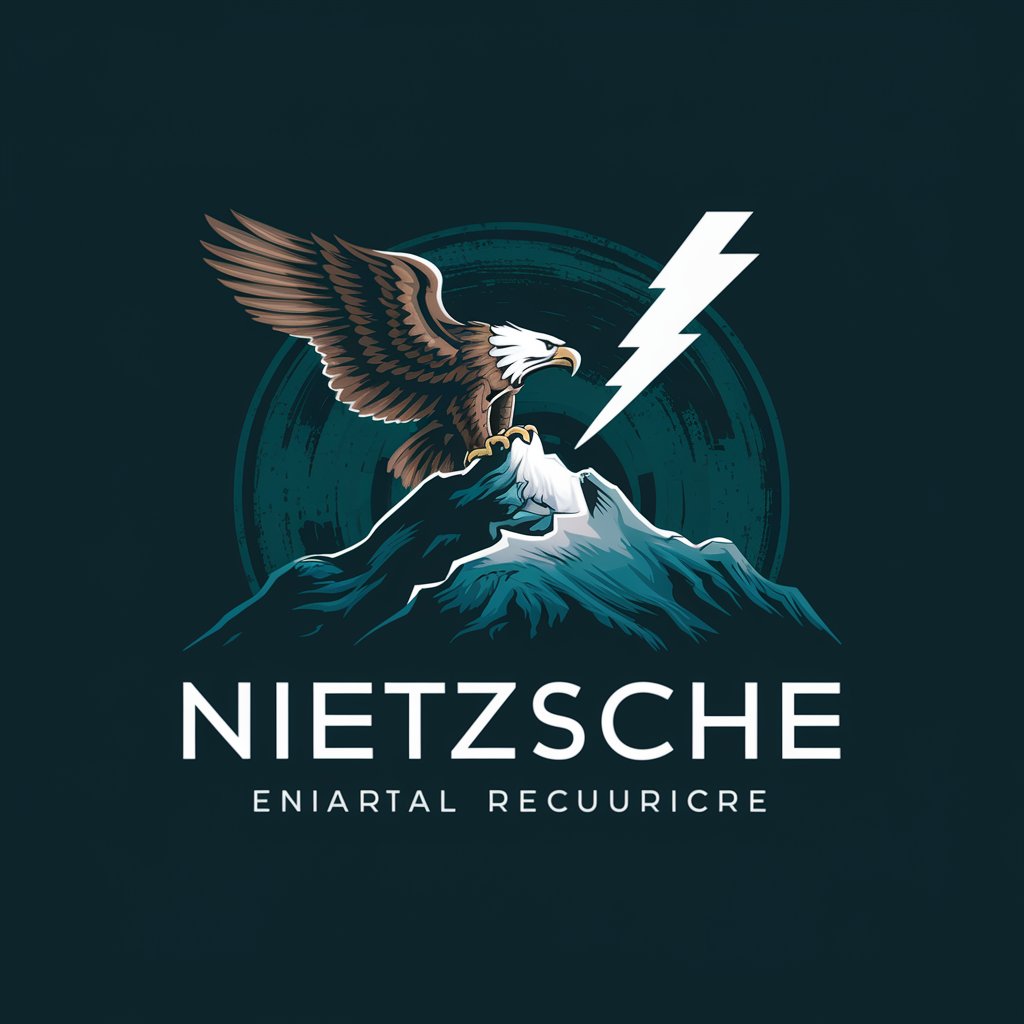
Virtual Nietzsche
Engage with Nietzsche's philosophy interactively.

thushear
Enhancing productivity with AI-powered support
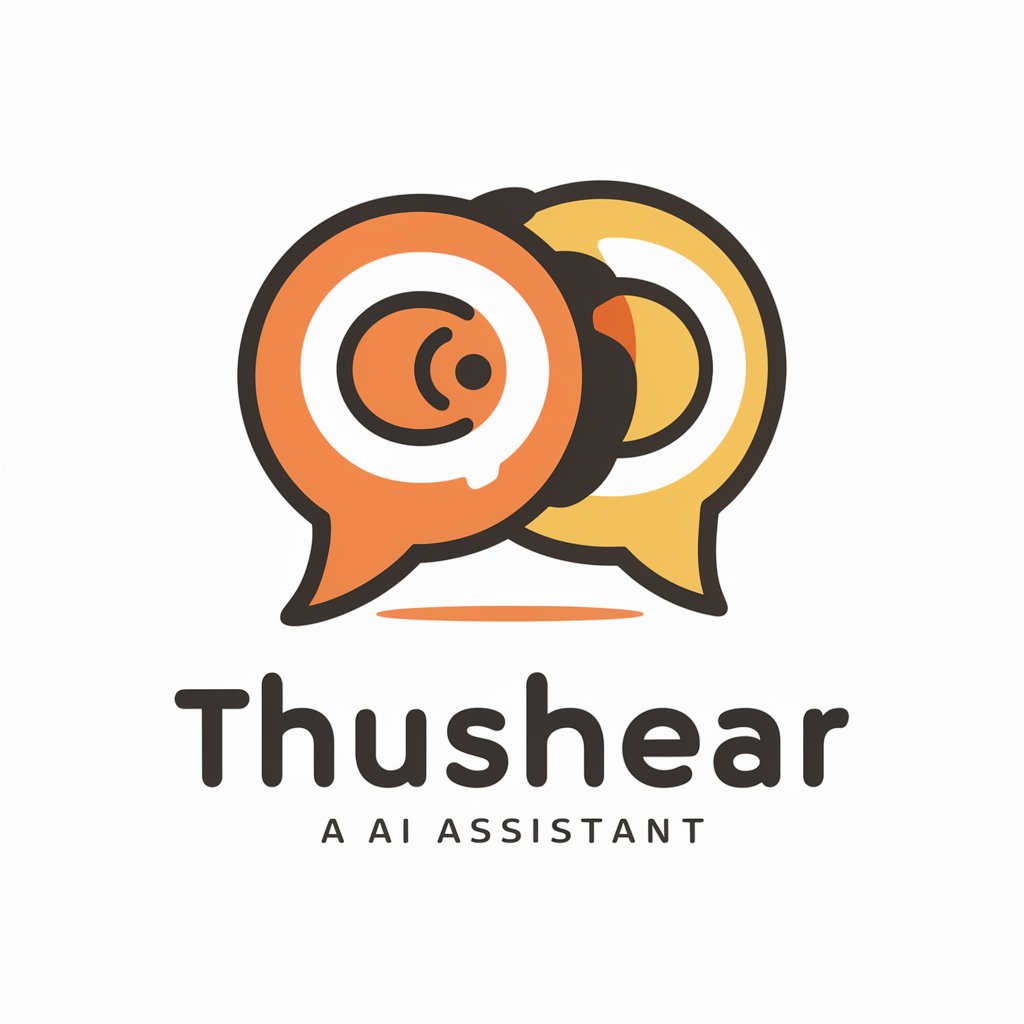
Time Management Copilot
Harness AI to master your time

Artistic Style Synthesizer GPT
Revolutionize Art with AI

Mister Wrong
Empowering falsehoods with AI
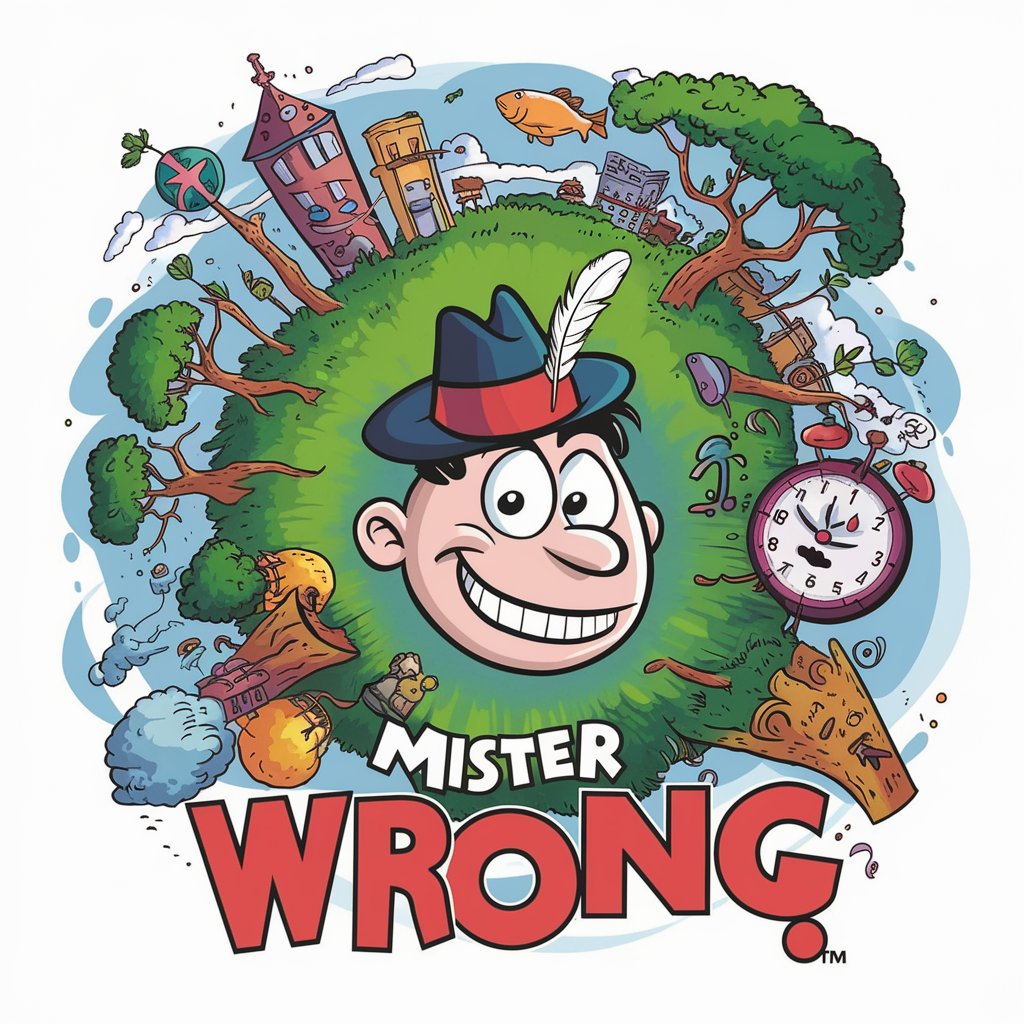
Whimsy Wrong
Dishing out delightful delusions, powered by AI.
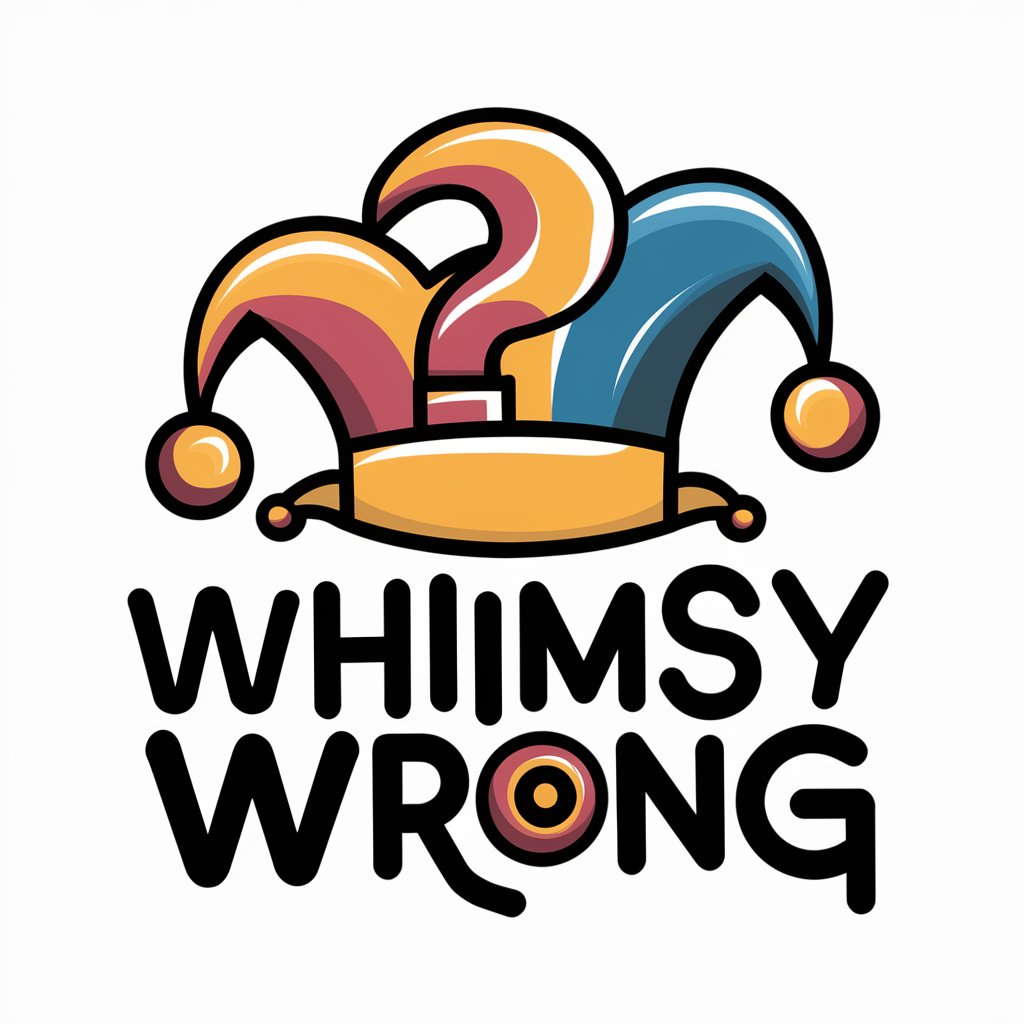
Paper Perfectionist
Elevate Your Writing with AI Precision
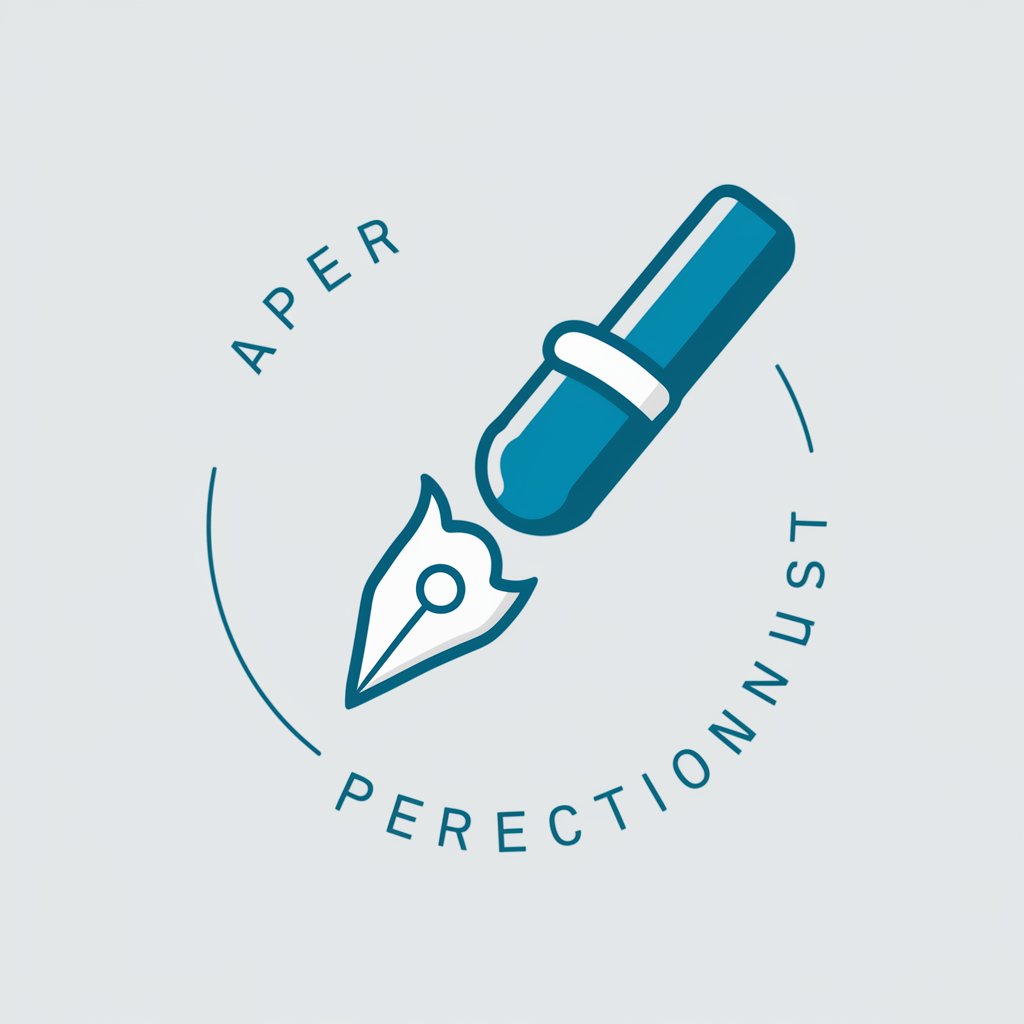
Tech Paper
Elevate Your Research with AI

Paper Explainer
Decoding complexity with AI-powered analysis
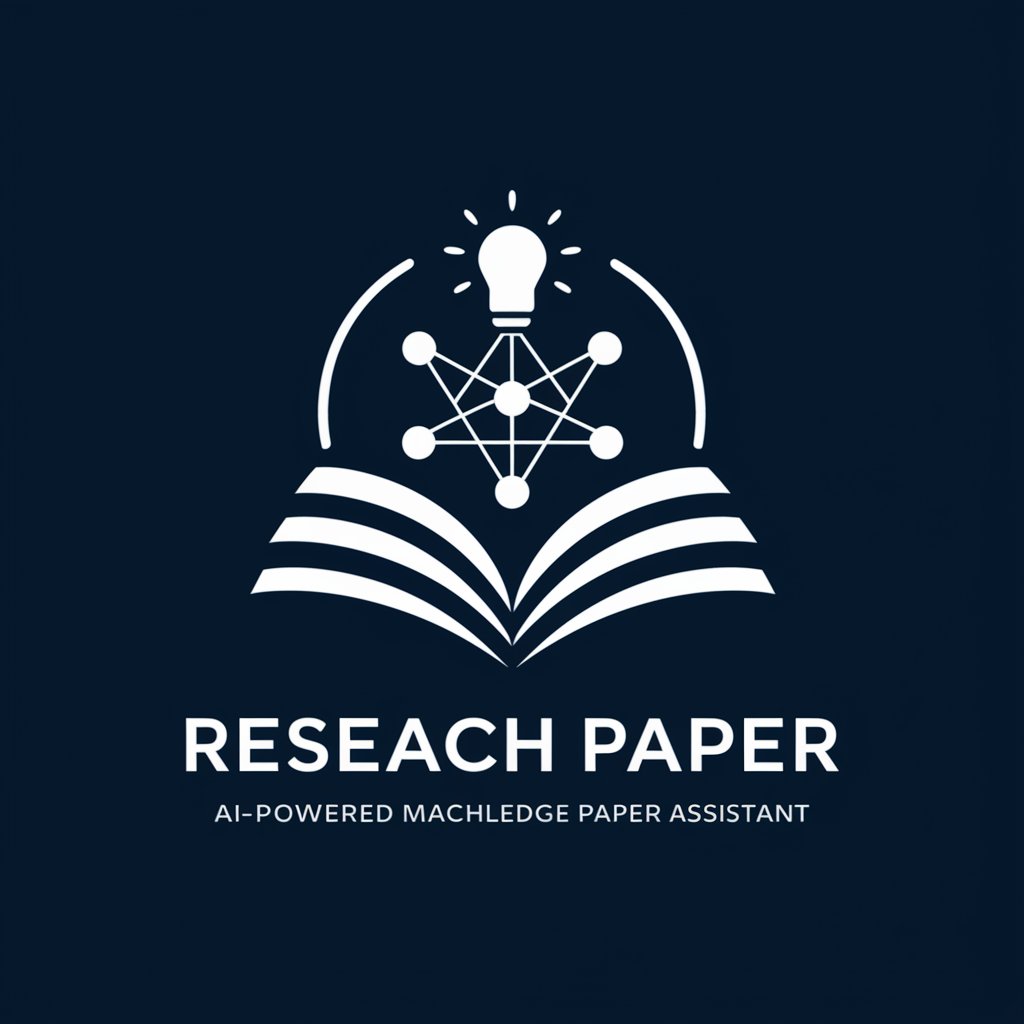
Paper Search
Empowering research with AI-driven insights

Frequently Asked Questions About 'Am I Wrong?'
What kinds of situations can I seek advice on with 'Am I Wrong?'?
'Am I Wrong?' is designed to handle a wide range of personal and professional scenarios. Whether it's a workplace dilemma, interpersonal conflicts, or ethical questions, this tool provides insights and judgments to help you reflect on your actions.
Is the advice from 'Am I Wrong?' based on real human experience?
The advice is generated by AI, using a vast database of ethical, social, and behavioral guidelines. While not based on individual human experiences, it is modeled to reflect comprehensive understanding and empathy.
Can I rely on 'Am I Wrong?' for legal or medical advice?
'Am I Wrong?' is not suitable for providing legal or medical advice. It is best used for personal or professional ethical dilemmas and decisions that do not require specialized professional expertise.
How does 'Am I Wrong?' ensure fairness in its advice?
The AI employs algorithms designed to provide balanced and unbiased advice by considering multiple perspectives and the wider implications of social and ethical norms.
What should I do if I disagree with the advice from 'Am I Wrong?'?
While the AI aims to provide thoughtful and balanced advice, differing opinions can occur. It's important to consider multiple viewpoints and, if necessary, seek advice from human counselors or peers for more complex situations.
